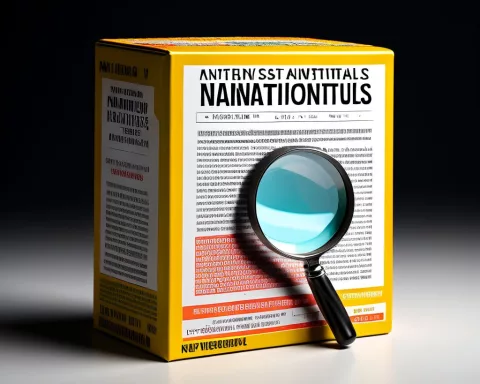The COGTA Committee has released a comprehensive report detailing the financial strategies and anticipated performance for the fiscal cycle of 2024/25, including budgetary plans for the Department of Cooperative Governance and Traditional Affairs and the Municipal Infrastructure Support Agent. The report also focuses on fostering transparency and accountable governance, addressing distressed and dysfunctional municipalities, spatial integration and traditional practices, and fiscal planning and allocation. The committee’s commitment to enhancing community welfare and sustaining traditional practices is evident in their dedication to oversight in government operations.
What is the COGTA Committee’s 2024/25 financial strategy?
The Portfolio Committee on Cooperative Governance and Traditional Affairs (COGTA) has released a report detailing the financial strategies and anticipated performance for the fiscal cycle of 2024/25, including the budgetary plans for the Department of Cooperative Governance and Traditional Affairs and the Municipal Infrastructure Support Agent. The report also focuses on fostering a culture of transparency and accountable governance, addressing distressed and dysfunctional municipalities, spatial integration and traditional practices, and fiscal planning and allocation.
Government Strategies and Execution Matrix
The complex network of government operations critically depends on a well-thought-out financial roadmap. The Portfolio Committee on Cooperative Governance and Traditional Affairs (COGTA) has moved forward with its report detailing the financial strategies and anticipated performance for the fiscal cycle of 2024/25. This comprehensive report includes the budgetary plans for the Department of Cooperative Governance and Traditional Affairs and the Municipal Infrastructure Support Agent (MISA).
Foster Accountability and Transparency
In fostering a culture of transparency and accountable governance, the COGTA committee has taken steps to organize follow-up meetings with the above-mentioned departments and MISA. The committee’s foresight is commendable as it aims to address the issues related to distressed and dysfunctional municipalities—a topic that often fails to capture the public’s attention. The upcoming discussions are projected to provide insights into the financial sustainability of these municipalities, particularly those that have experienced consolidation.
An array of queries awaits the committee, ranging from the role of the Community Work Programme to the status of service delivery-related litigation by local civic organizations. The latter has become increasingly relevant in today’s volatile socio-political landscape. The committee’s agenda also includes the financial condition of the eThekwini Metropolitan Municipality and the fiscal strain due to municipal debt related to bulk water and electricity services. Another aspect under scrutiny is the extent of non-revenue water losses by municipalities.
Spatial Integration and Traditional Practices
Regarding spatial integration—an essential step to rectify the vestiges of apartheid-era spatial planning—the committee has sought an update on its progress. The importance of this task is underscored by the persistent concerns voiced by traditional leaders. Subsequent meetings will cover the Spatial and Land Use Management Act (2013) in detail. The committee’s focus on the unfortunate loss of lives linked to male customary initiation—a long-standing cultural practice marred by tragedy—is noteworthy. The committee is dedicated to ensuring the safe execution of this tradition.
The committee’s scope of interest also reaches out to the ongoing traditional kingship and queenship leadership disputes across the nation, which includes legal proceedings and other related matters warranting the department’s attention. This move demonstrates an understanding of cultural dynamics, a viewpoint that is often neglected in the governance process.
The Committee expects updates on various issues from the Minister of Cooperative Governance and Traditional Affairs, notably pertaining to the predicament of Khoisan communities. This interaction symbolizes the recognition of the distinctive challenges this indigenous group faces.
Fiscal Planning and Allocation
The upcoming debate on the department’s budget is the next essential segment in this complex narrative. The financial allocation for the 2024/25 budget restricts the Department of Cooperative Governance with a baseline reduction of R1.3 billion, resulting in a total of R125.1 billion. Conversely, MISA has been allotted a budget of R406.6 million. Additionally, the Department of Traditional Affairs will operate on a budget of R187.2 million for the fiscal year of 2024/25.
This narrative underscores the committee’s commitment to transforming budgets from being just financial plans to strategic tools that enhance community welfare and sustain traditional practices. It emphasizes the need for continuous oversight in the government’s operational dynamics—a formidable task that the COGTA committee has assumed with diligence.
-
What is the COGTA Committee’s 2024/25 financial strategy?
The COGTA Committee has released a report detailing the financial strategies and anticipated performance for the fiscal cycle of 2024/25, including the budgetary plans for the Department of Cooperative Governance and Traditional Affairs and the Municipal Infrastructure Support Agent. The report also focuses on fostering transparency and accountable governance, addressing distressed and dysfunctional municipalities, spatial integration and traditional practices, and fiscal planning and allocation. -
What is the government strategies and execution matrix?
The government strategies and execution matrix refers to the Portfolio Committee on Cooperative Governance and Traditional Affairs’ detailed financial roadmap for the fiscal cycle of 2024/25, which includes budgetary plans for the Department of Cooperative Governance and Traditional Affairs and the Municipal Infrastructure Support Agent. -
How is the COGTA Committee fostering accountability and transparency?
The COGTA Committee is fostering a culture of transparency and accountable governance by holding follow-up meetings with departments and the Municipal Infrastructure Support Agent. The committee aims to address issues related to distressed and dysfunctional municipalities and provide insights into their financial sustainability, particularly those that have experienced consolidation. -
What is the COGTA Committee’s focus on spatial integration and traditional practices?
The COGTA Committee is focused on rectifying the vestiges of apartheid-era spatial planning by seeking updates on spatial integration progress. The committee is also committed to ensuring the safe execution of long-standing cultural practices such as male customary initiation and addressing traditional kingship and queenship leadership disputes. -
What is the fiscal planning and allocation for the COGTA Committee’s 2024/25 financial strategy?
The Department of Cooperative Governance and Traditional Affairs will operate on a budget of R125.1 billion, with a baseline reduction of R1.3 billion, whereas the Municipal Infrastructure Support Agent has been allotted a budget of R406.6 million. The Department of Traditional Affairs will operate on a budget of R187.2 million for the fiscal year of 2024/25. -
What is the COGTA Committee’s commitment to enhancing community welfare and sustaining traditional practices?
The COGTA Committee is committed to transforming budgets into strategic tools that enhance community welfare and sustain traditional practices. The committee is also dedicated to continuous oversight in the government’s operational dynamics.












